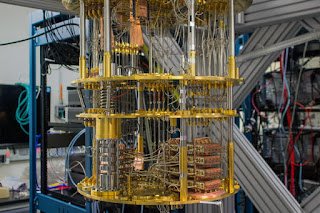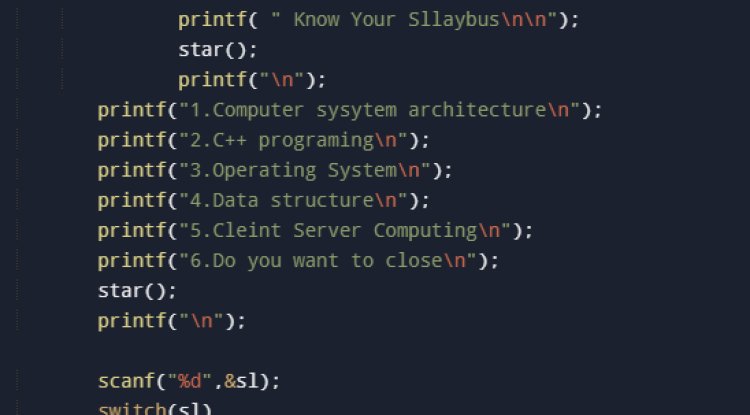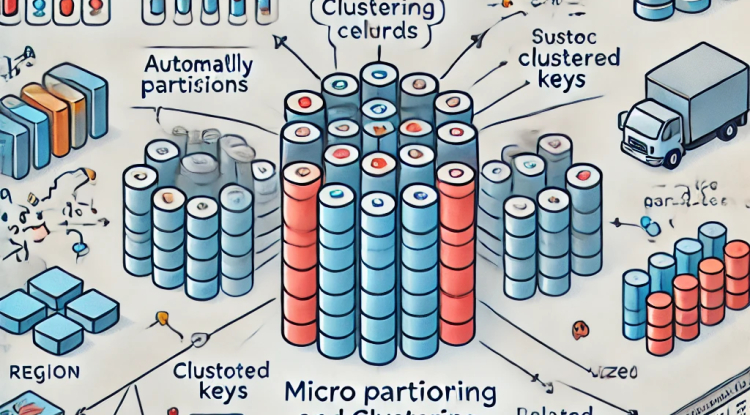The Evolution of Quantum Computing: A Leap Towards the Future of Technology
1. The Evolution of Quantum Computing: A Leap Towards the Future of Technology

Quantum computing has emerged as one of the most revolutionary technological advancements of the 21st century, promising to reshape the landscape of computational science, artificial intelligence, cryptography, and various other fields. From its theoretical foundations in the 1970s to the creation of the first prototype by IBM in 2016, quantum computing has journeyed through decades of intense research and development. As we stand at the threshold of this new era in technology, understanding the evolution, principles, and future of quantum computing has never been more critical.
A Brief History: From Theory to Reality
The roots of quantum computing can be traced back to the late 20th century, primarily between the 1970s and 1980s, when physicists and computer scientists began exploring the possibilities of leveraging quantum mechanics for computation. Quantum mechanics, the science that studies the behavior of particles at the atomic and subatomic levels, defied the classical laws of physics and introduced concepts that seemed counterintuitive, such as superposition and entanglement.
In 1990, the first algorithm tailored for quantum computing was developed, showcasing the potential of quantum systems to solve problems that were impossible for traditional computers. This period marked a significant milestone in computational theory, laying the groundwork for the development of quantum algorithms like Shor's algorithm, which could theoretically break modern cryptographic systems by factoring large numbers efficiently.
In May 2016, IBM made a breakthrough in the field by developing the first functional prototype of a quantum computer. This achievement not only validated the decades of theoretical research but also provided the first platform for public access to quantum computation. Researchers, developers, and scientists worldwide now had a new tool to address some of the most complex problems in physics, chemistry, and computer science.
Over the last 50 years, progress in mathematics, materials science, and computer science has transformed the abstract theories of quantum mechanics into tangible innovations in quantum computing. What once seemed like an abstract concept is now evolving into practical technology, with applications poised to impact industries ranging from finance to pharmaceuticals and beyond.
Understanding Quantum Computing: A New Paradigm in Technology
To grasp the significance of quantum computing, it is essential to understand how it differs fundamentally from classical computing. Classical computers, which form the basis of all modern technology, use bits as their smallest unit of data. Each bit can exist in one of two states: 0 or 1. This binary system underpins all computations in classical systems, where operations are carried out sequentially, one after another.
Quantum computers, on the other hand, use quantum bits or "qubits." Unlike classical bits, qubits can exist in a state of both 0 and 1 simultaneously, thanks to the principle of superposition. This phenomenon allows quantum computers to process a vast number of possibilities simultaneously, providing a dramatic increase in computational power over classical machines.
Additionally, quantum computers leverage another principle of quantum mechanics called "entanglement," where pairs or groups of qubits become interconnected such that the state of one qubit instantly influences the state of another, no matter the distance between them. This entanglement allows for extremely efficient communication between qubits, further enhancing the computational power and enabling faster problem-solving capabilities.
How Quantum Computers Operate
The unique way in which quantum computers function is what sets them apart from traditional computers. Here's a closer look at the key components that drive quantum computation:
-
Superposition: Superposition is a fundamental property of quantum systems that allows qubits to exist in multiple states simultaneously. Instead of being limited to 0 or 1, a qubit can be in a state that represents both values at the same time. This capability is akin to flipping a coin and it being both heads and tails simultaneously until observed. Superposition exponentially increases the processing power of quantum computers because they can perform multiple calculations at once.
-
Entanglement: Entanglement is a phenomenon where two or more qubits become linked, and the state of one qubit directly affects the state of another, regardless of the distance separating them. This interconnectedness enables quantum computers to perform complex operations with a level of efficiency and speed unattainable by classical systems. When qubits are entangled, the information contained within them is shared instantaneously, allowing quantum computers to solve problems in a fraction of the time it would take a traditional computer.
-
Quantum Tunneling: Quantum tunneling is another remarkable quantum effect that plays a crucial role in certain quantum algorithms. It allows particles to pass through energy barriers that would be insurmountable in classical physics. This ability to explore multiple possibilities quickly can be harnessed to optimize solutions to complex computational problems, making quantum computers ideal for tasks like protein folding, logistics optimization, and advanced cryptography.
Applications of Quantum Computing: Transforming Industries
Quantum computing holds the potential to revolutionize numerous sectors by providing unprecedented computational capabilities. Here are some of the fields poised to benefit the most from this emerging technology:
-
Cryptography and Cybersecurity: One of the most widely discussed applications of quantum computing is in the field of cryptography. Quantum computers have the power to break the encryption standards that protect most of today’s digital communication. Algorithms like Shor's algorithm can factorize large numbers exponentially faster than the best classical algorithms, posing a threat to current cryptographic methods. However, quantum computing also offers the possibility of creating quantum-safe encryption techniques, which will be critical in securing future communication systems.
-
Drug Discovery and Healthcare: The pharmaceutical industry stands to gain significantly from quantum computing's ability to simulate complex molecular structures with high precision. Traditional drug discovery is often a long and costly process that relies on trial-and-error methods. Quantum computers can predict molecular interactions at an atomic level, accelerating the development of new drugs and treatments. This capability can lead to personalized medicine, improved diagnostics, and more effective treatments for diseases.
-
Artificial Intelligence and Machine Learning: Quantum computing can take artificial intelligence and machine learning to the next level by enabling faster data analysis, improved pattern recognition, and enhanced optimization techniques. Machine learning algorithms can be trained much more quickly using quantum processors, which can analyze vast amounts of data in parallel. This acceleration could lead to breakthroughs in AI, including natural language processing, autonomous systems, and predictive analytics.
-
Optimization Problems: Industries such as logistics, finance, and manufacturing often face complex optimization problems that require finding the most efficient solutions among countless possibilities. Quantum computers excel at solving these types of problems, using their ability to explore multiple solutions simultaneously. Applications include route optimization for logistics companies, portfolio optimization in finance, and supply chain management in manufacturing.
-
Climate Modeling and Sustainability: Quantum computing can also play a vital role in addressing global challenges like climate change. Accurate climate modeling requires processing an immense amount of data to predict weather patterns and environmental changes. Quantum computers can simulate these models with greater accuracy, helping scientists develop strategies to combat climate change and promote sustainable practices.
Challenges and the Road Ahead for Quantum Computing

Despite its enormous potential, quantum computing is still in its infancy, and several challenges must be addressed before it can become mainstream. Some of the major hurdles include:
-
Qubit Stability and Error Rates: One of the biggest challenges in quantum computing is maintaining qubit stability. Qubits are highly sensitive to environmental disturbances like temperature fluctuations and electromagnetic interference, leading to a phenomenon known as "quantum decoherence." Quantum computers need to operate at near-zero temperatures to minimize errors, which complicates their practical implementation.
-
Scalability: Building a quantum computer with a large number of qubits that can perform useful calculations is a complex engineering challenge. Current prototypes are limited to a few dozen qubits, and scaling up to thousands or millions of qubits while maintaining coherence and entanglement is a significant technical hurdle.
-
Algorithm Development: Quantum computing requires the development of new algorithms tailored to its unique properties. While classical algorithms have been refined over decades, quantum algorithms are still in the early stages of research. Creating efficient algorithms for real-world applications is essential to harnessing the true power of quantum computers.
-
Resource Demands: The infrastructure required to operate a quantum computer is extensive. Most quantum systems require supercooled environments and sophisticated error correction techniques, which make them costly and difficult to deploy outside of research institutions and specialized facilities.
The Future of Quantum Computing: A New Dawn in Technology
Quantum computing has the potential to transform the technological landscape, opening doors to advancements that were once thought impossible. As research and development continue to progress, we can anticipate a future where quantum computers tackle problems beyond the reach of classical machines, pushing the boundaries of what is achievable.
This technology could lead to groundbreaking innovations in fields like artificial intelligence, secure communication, materials science, and much more. Quantum computing may eventually become as integral to our lives as classical computing is today, leading to a future where complex calculations are performed in seconds rather than years.
Quantum computers could one day prove to be as transformative as the invention of the internet or the creation of the transistor. By enhancing our ability to solve intricate problems, innovate new technologies, and understand the universe's fundamental workings, quantum computing represents a giant leap forward in the evolution of technology.
Conclusion: The Quantum Revolution Awaits
As we look to the future, it is evident that quantum computing is not just a technological milestone; it is a paradigm shift that will redefine the boundaries of human capability. While many challenges lie ahead, the progress made in the past few decades points to a promising trajectory. The journey from the early theoretical concepts of the 1970s to the functioning quantum prototypes of today has shown that the world of computation is on the cusp of a new dawn.
The implications of this technology are vast, and its impact will be felt across every industry, from healthcare to finance, artificial intelligence to cybersecurity. As quantum computing continues to evolve, it will unlock solutions to problems we cannot even imagine today, heralding an era of unprecedented technological growth and innovation.
What's Your Reaction?



















